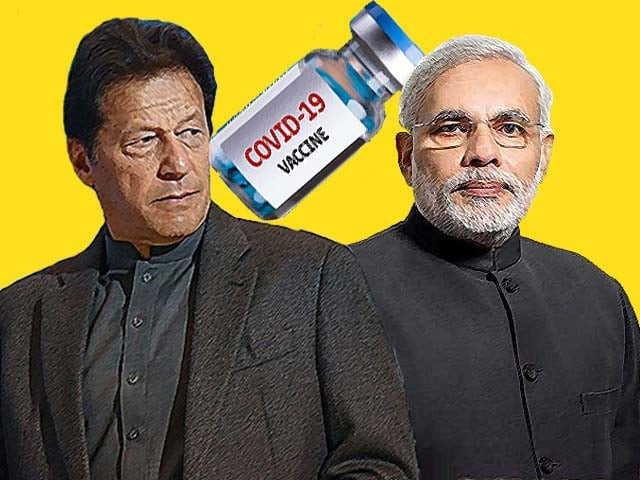Pakistani United Nations (UN) Representative Jawad Ali Chatha criticised India’s so-called “vaccine diplomacy” while addressing the General Assembly. The official Twitter account of the country’s UN Mission quoted him as saying,
“It is ironic that a country that continues to flaunt its so-called #vaccine diplomacy abroad has turned hospitals in Occupied Jammu and Kashmir (IIOJK) into graveyards, choking essential medical supplies, let alone the Covid vaccine”.
This is a valid point that deserves to be analysed a bit more in depth in order to appreciate its multiple nuances.
The first aspect to be addressed is the very concept of “vaccine diplomacy”, which refers to the use of vaccines to promote political, economic, and soft power agendas. This is part and parcel of contemporary international conditions since the onset of the Covid-19 pandemic last year and Russia’s registration of the world’s first-ever vaccine against this virus, Sputnik V. India is the world’s largest vaccine manufacturer, so it’ll naturally conduct this type of diplomacy as well. The problem, however, is that it’s prioritising such exports at the expense of meeting “domestic” demand in the world’s second most populous country.
The word “domestic”, however, should be used cautiously when referring to the inhabitants of Indian Illegally Occupied Jammu & Kashmir (IIOJK) since its status is internationally contested by the UN Security Council. Nevertheless, India unilaterally regards the region as an integral part of its territory as a result of its de facto annexation in August 2019 and subsequent bifurcation. That makes it all the more ironic that New Delhi is neglecting to meet the locals’ inoculation needs, which only goes to show how insincere the state’s claims always were that it regards the disputed region as an integral part of its country.
It is way worse than that though as Pakistan’s UN Representative rightly noted since IIOJK has literally turned into a massive graveyard for Kashmiris over the decades as a result of India’s countless human rights abuses there. For this reason, it actually isn’t surprising that the locals’ healthcare needs aren’t being met since India doesn’t care all that much about their lives in general. In its eyes, they’re just meddlesome locals who coincidentally inhabit geostrategic territory rich with hydrological resources that can be weaponised against Pakistan. The land, not the locals, is all that India cares about.
That being the case, India still regularly makes unconvincing pretences of abiding by international democracy and human rights standards because it understands the negative impact that its aggressive actions have in terms of its soft power abroad. One would think that they’d have thus sought to make IIOJK the most successful example of their “internally” directed “vaccine diplomacy” for that reason, but alas, that wasn’t what they ultimately decided to do for whatever reason. This created the excellent opportunity for Pakistan to expose the irony of India’s “vaccine diplomacy”, which in turn nullifies some of New Delhi’s intended soft power gains.
In many ways, India is becoming more and more like its new “Israeli” ally. The self-professed Jewish State also neglects the vaccine needs of the occupied Palestinian people living under its control despite claiming that their territory is an integral part of their political entity just like India does when it comes to the Kashmiris of IIOJK. The Kashmiris and Palestinians are therefore suffering from very similar abuses, especially regarding their occupiers’ refusals to properly meet their inoculation needs. It would be significant if Pakistani or other officials elsewhere publicly pointed this out as well.
All of these observations and suggestions deserve to be pondered after Pakistan exposed the fact that India’s “vaccine diplomacy” is occurring at the expense of some of the same people who New Delhi falsely claims inhabit an integral part of its territory. In fact, its UN Representative’s points are even more poignant if one for whatever reason accepts IIOJK as a “legitimate” part of India because the uncomfortable question arises of why the state fumbled what could have otherwise been an easy soft power success. It can’t be known for sure, but one plausible explanation is that the ruling BJP’s rabid Islamophobia simply makes it want to see Muslims suffer.



COMMENTS
Comments are moderated and generally will be posted if they are on-topic and not abusive.
For more information, please see our Comments FAQ